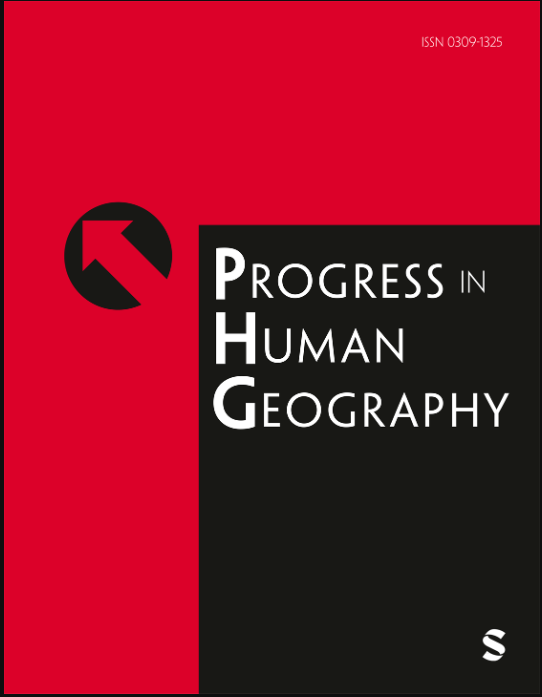Edward W. Soja的激进空间透视
IF 6.1
1区 社会学
Q1 GEOGRAPHY
引用次数: 0
摘要
爱德华·w·索贾(Edward W. Soja)在职业生涯的早期就看到,“现在,对我们隐瞒后果的是空间而不是时间,是地理而不是历史。”他一生的学术项目都围绕着这一争论展开,这激发了他对社会空间辩证法的倡导,他对所谓的“空间转向”的贡献,以及他对所有正义问题都是地理问题的狂热信念,这使得“在批判社会理论中重申空间”成为必要。在他果断的跨学科和议程设置工作中,他与几个思想流派联系在一起,从马克思主义和文化研究,到后现代主义和批判理论。但他的定义特征仍然是他对城市和地区研究的激进方法,如-à-vis对洛杉矶的调查,这是由亨利·列斐伏尔的工作提供的信息。在他对城市化、结构调整和政治斗争进行的数十年调查中,他开发了一套词汇,有助于识别、问题化和讨论一系列其他方面的空间本体论、认识论和现象学学术立场,并始终将空间置于中心位置。本文讨论了Soja对激进空间视角的个人和思想主张,认为他作为“后现代地理学家”的简洁分类既是真实的,也是想象的——既是限制,也是解放。本文章由计算机程序翻译,如有差异,请以英文原文为准。
Edward W. Soja's Radical Spatial Perspective
Edward W. Soja saw early in his career that “it is now space more than time, geography more than history, that hides consequences from us.” His life-long scholarly project centered around this contention, inspiring his advocacy of a socio-spatial dialectic, his contribution to the so-called “spatial turn,” and his fervent belief that all matters of justice are matters of geography, necessitating the “reassertion of space in critical social theory.” In his decidedly interdisciplinary and agenda-setting work, he became associated with several schools of thought, from Marxism and cultural studies, to postmodernism and critical theory. But his defining feature remained his radical approach to the study of cities and regions vis-à-vis an investigation of Los Angeles informed by the work of Henri Lefebvre. In doing his decades of investigation of urbanization, restructuring, and political struggle writ large, he developed a lexicon that helped identify, problematize, and speak to an array of otherwise aspatial ontological, epistemological, and phenomenological scholarly positions, always placing space at the center. This paper discusses Soja's personal and intellectual advocacy of a radical spatial perspective, arguing that his neat categorization as a “postmodern geographer” is one that is both real and imagined—as limiting as it is liberating.
求助全文
通过发布文献求助,成功后即可免费获取论文全文。
去求助
来源期刊

Progress in Human Geography
GEOGRAPHY-
CiteScore
16.40
自引率
7.00%
发文量
56
期刊介绍:
Progress in Human Geography is the peer-review journal of choice for those wanting to know about the state of the art in all areas of research in the field of human geography - philosophical, theoretical, thematic, methodological or empirical. Concerned primarily with critical reviews of current research, PiHG enables a space for debate about questions, concepts and findings of formative influence in human geography.
 求助内容:
求助内容: 应助结果提醒方式:
应助结果提醒方式:


